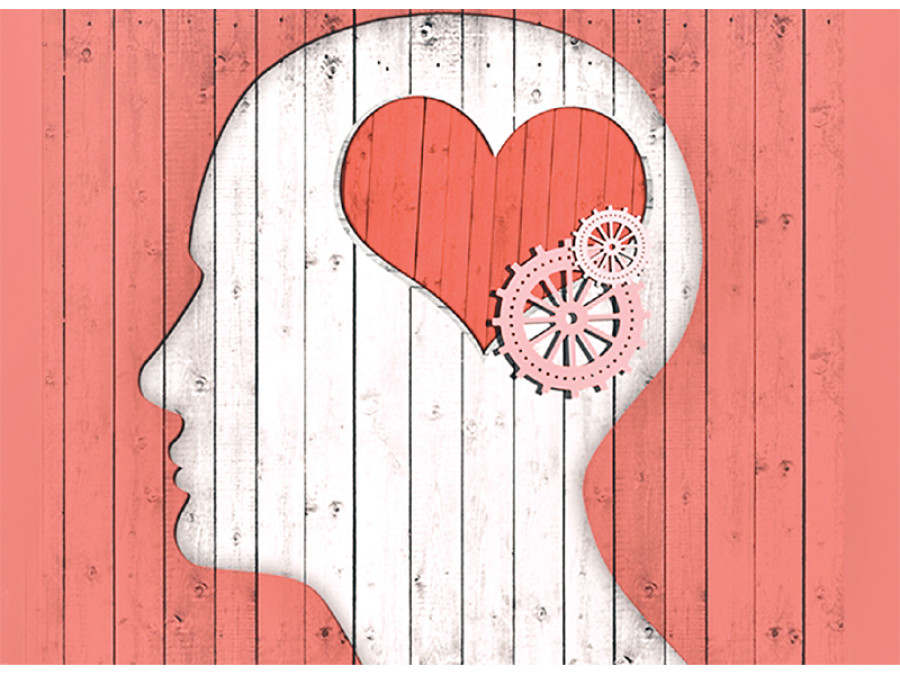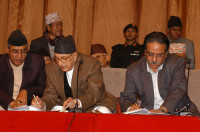Opinion
Understanding emotions
How an emotion affects individuals mostly depends on how they react to and deal with them
Sanjeev Dahal
In a very real sense we have two minds, one that thinks and one that feels” says Daniel Goleman, an internationally known psychologist. It is interesting that facebook, which has become an inseparable part of many lives, seems to have captured both these minds proposed by Goleman through its never-satisfying desire to know what the user is thinking and feeling. We all think a lot but reflection on our feelings might not get the same share of our time.
It is natural that people feel different emotions at different times, and it is but natural to express those feelings. The question is: ‘Do we adequately recognise these feelings in us and deal with them?’
The book titled ‘A Dictionary of Psychology’ shares that emotional intelligence or emotional quotient is the ability of individuals to recognise their own and other people’s emotions, to discriminate between different feelings and label them appropriately, and to use emotional information to guide their thinking and behaviour. Many a time, we fail to recognise our emotions and thus fail to deal with them; an example might be smokers misinterpreting hunger for craving to smoke which, in the long run, keeps them addicted to cigarettes.
Many of us categorise emotions as good and bad: Gratitude, happiness, hope, love being the former and anger, anxiety, hatred, jealousy the latter. And as children many of us are told that a gyani child only has good emotions. But it is important to understand that all of these emotions are natural and should not be labelled as good or bad. How an emotion affects individuals mostly depends on how they react to and deal with them, for example, a little bit of anxiety before an exam or presentation can keep her focused and yield better results but too much of it can make things worse. The good news is emotional intelligence can be learnt.
There are various books, organisations and training programmes that help individuals develop or increase emotional intelligence. Onlineuniversities.com suggests 10 best books on this: ‘Emotional Intelligence: Why It Can Matter More Than IQ’ by Goleman is ranked the best, followed by ‘Emotional Intelligence 2.0’ by Travis Bradberry. There are organisations in Nepal offering training programmes on emotional intelligence as well, such as World Without Anger, an
NGO; Kabule—The Wise Leader, an international training institute, and Ankur Counselling Centre that provides counselling on emotional intelligence development and also runs emotional intelligence tests for the children they support.
Many studies, like the one mentioned by Goleman indicate that emotional intelligence accounted for 67 percent of the abilities deemed necessary for superior performance in leaders, and mattered twice as much as technical expertise or Intelligence Quotient.
John D. Mayer , a psychologist suggests that ‘’development of emotional intelligence has a significant influence on an individual’s achievements, including academic success, and is seen as a key aspect of positive development.” Albeit slow, there is an increasing focus on soft skills along with technical competencies in academia to fill in the gaps between what academic institutions provide and what the market seeks.
Ravi Pradhan, back in 2014, had shared about the social and emotional learning (SEL) approaches comprising mainly knowledge, attitude and skills in self-awareness, self-management, social awareness, relationship management and responsible decision making, suggesting that private schools train their teachers in SEL. This might be the simplest way to introduce the much needed soft skills in Nepali education; I strongly advocate that emotional intelligence should be a part of the curricula in all schools.
I would extend my proposal even further to include all teachers to be trained in emotional intelligence, not merely the ones facilitating the training. It has been asserted by professionals that “emotional intelligence of educators has a direct impact on the academic experiences and performance of students”. I believe that this will also significantly help teachers to understand the kids, thus contributing to better teacher-student relationships and ultimately making profound positive impact on the school environment and overall development of individual students.
Dahal is pursuing Masters in Social Work with Families and Children at University Institute of Lisbon, Portugal




 12.12°C Kathmandu
12.12°C Kathmandu











